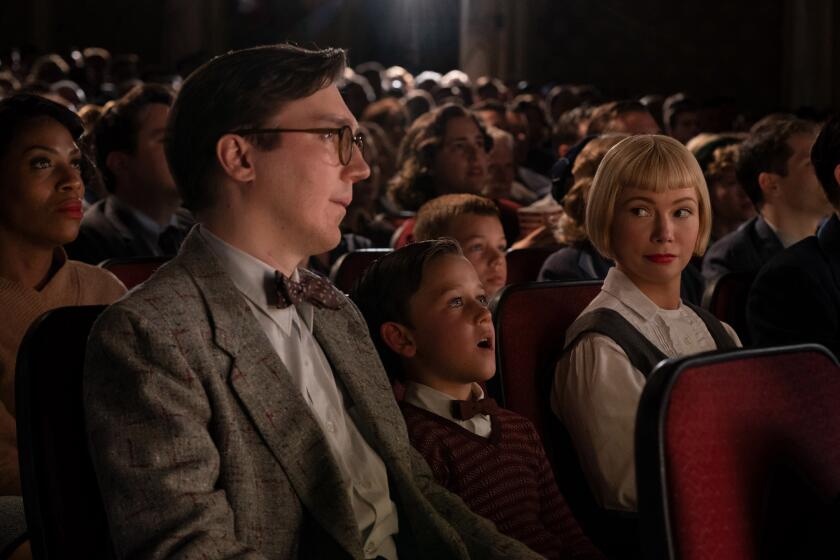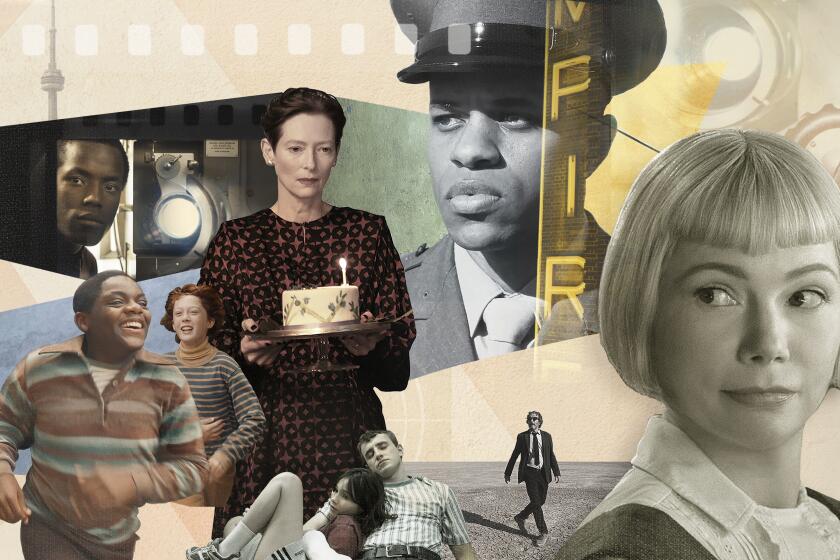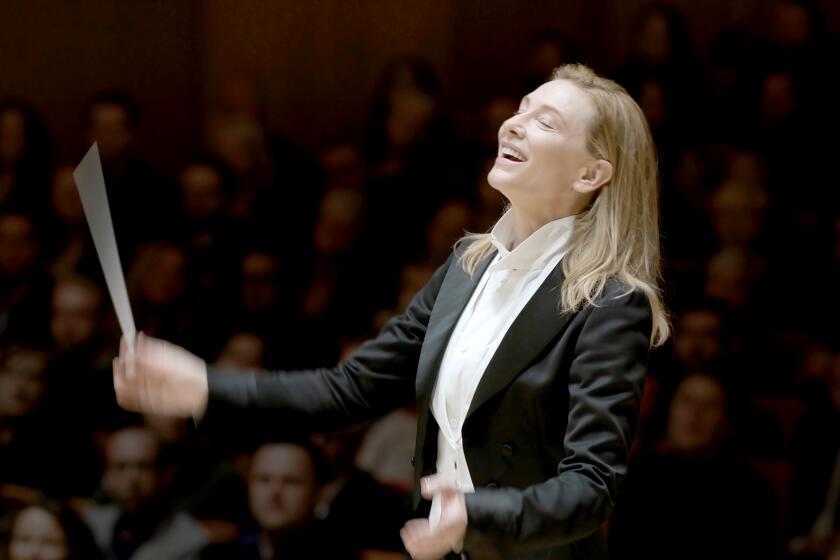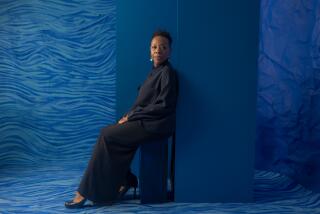Play Spielberg in a film directed by Spielberg? No pressure
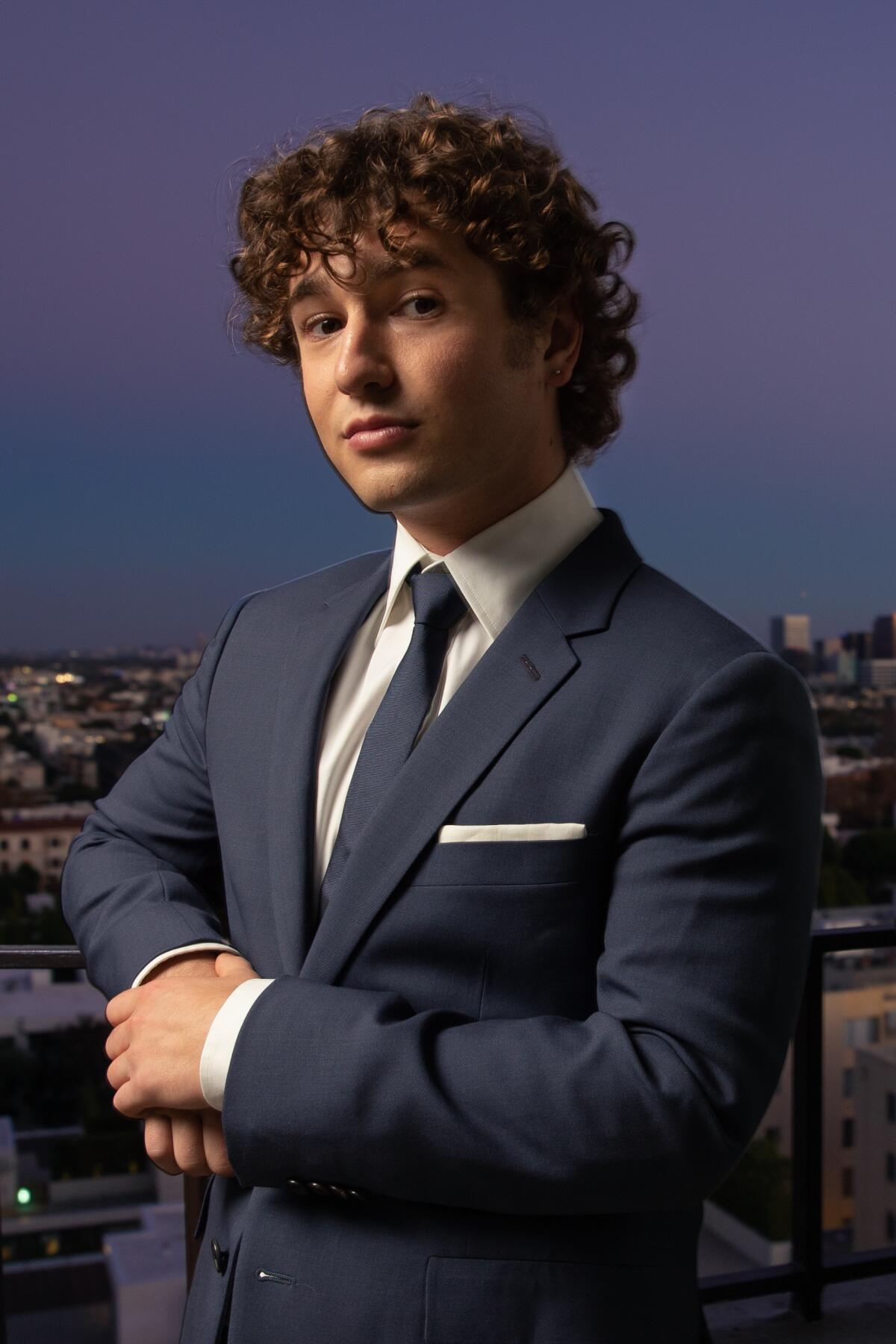
- Share via
When Gabriel LaBelle landed the role of Sammy Fabelman in Steven Spielberg’s autobiographical new film “The Fabelmans,” playing a version of the filmmaker in his teenage years, he figured he’d probably show up in the movie’s second act and then disappear after a handful of scenes.
After all, it’s not as if Hollywood’s all-time highest-grossing director was about to place a huge chunk of his life story in the hands of a complete unknown, right?
Then LaBelle received the script.
“I started folding the page of each scene I was in — and then I just stopped folding pages because I was in everything,” the 20-year-old LaBelle said on a recent morning as he sat next to an Indiana Jones pinball machine in the game room of Spielberg’s Amblin Entertainment production offices. “Nobody told me that. Nobody said anything! That’s when the nerves kicked in. You don’t want to be the guy that screws up Steven Spielberg’s life.”
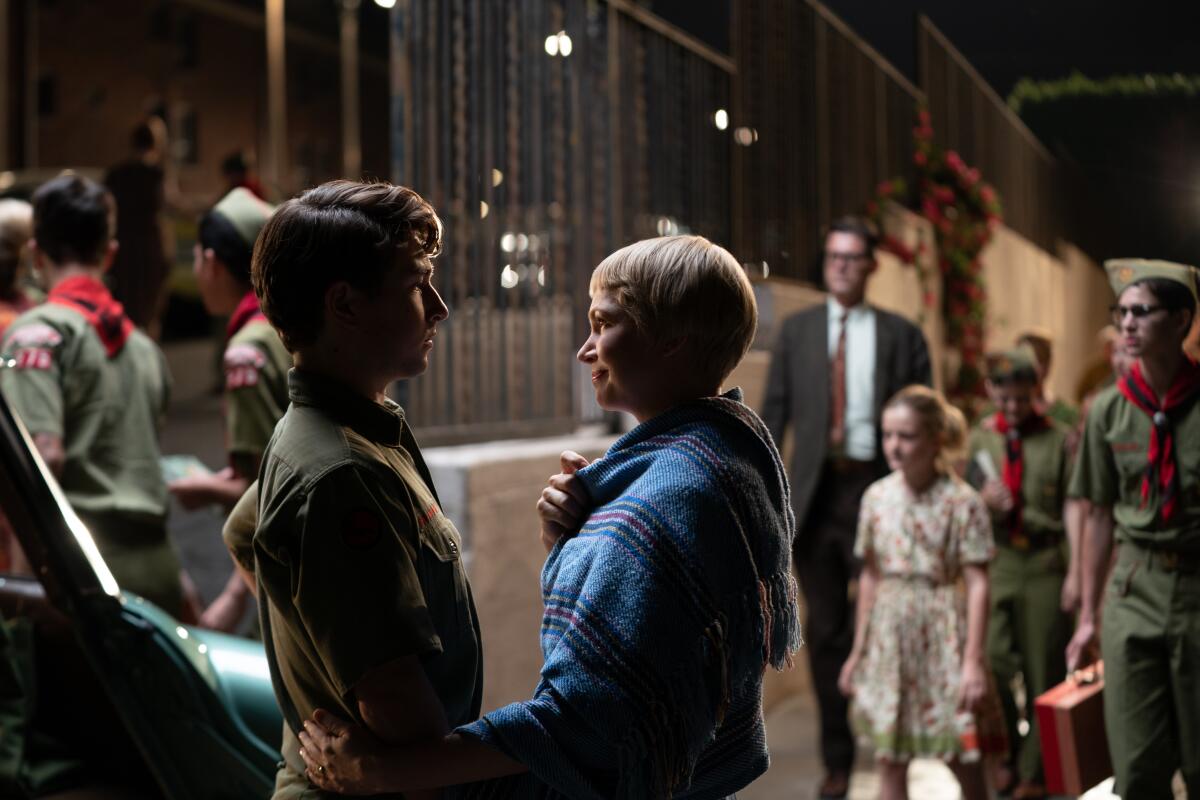
The most personal, introspective movie in Spielberg’s long and fabled filmography, “The Fabelmans,” which expands to theaters nationwide on Nov. 23 and is widely considered an Oscar front-runner, explores the loving but dysfunctional family that shaped the filmmaker and the burgeoning passion for cinema that eventually propelled him to fame. By turns tender and bittersweet, the film centers on the dissolution of the director’s parents’ marriage, with Michelle Williams playing a version of his free-spirited mother and Paul Dano as a kind-hearted engineer based on Spielberg’s father. But it’s through the eyes of LaBelle’s Sammy that much of the story unfolds.
To find the teenage Sammy, Spielberg and his team cast a wide net, considering more than 2,000 young actors. LaBelle’s audition tape, which he shot with his character-actor father, Ron, arrived relatively late in the casting process and immediately rose to the top of the pile. Despite LaBelle’s lack of professional experience — his most notable big-screen role was a bit part in 2018’s “The Predator” — Spielberg saw in the young actor a more self-possessed version of his own awkward teenage self.
The director looks back at his early years — and his life-changing love affair with the movies — in this marvelous new film starring Michelle Williams, Paul Dano and Gabriel LaBelle.
“The challenge of casting actors to play my parents was not as difficult as casting someone to represent myself,” says Spielberg, who co-wrote the film’s script with regular collaborator Tony Kushner. “I can be objective about my mom and dad, but no one can be really objective about themselves. Gabe was more the me of my imagination — so much cooler than I ever thought I was at that same age.”
When LaBelle was born in 2002, Spielberg was already 20 films deep into his career and a living legend. For the aspiring actor and self-professed movie nerd growing up in Vancouver, Spielberg’s movies were foundational texts.
“‘Indiana Jones,’ ‘Jurassic Park’ — I had the toys, video games, DVDs,” LaBelle says. “Then as I got older, I started diving into ‘Close Encounters,’ ‘Empire of the Sun,’ ‘Schindler’s List,’ the list goes on and on. I wasn’t around to experience the effect he had on the culture in real time. But I still realize what a big deal it is.”
To prepare for the role, LaBelle spent weeks immersing himself in Spielberg’s childhood 8-millimeter films and his formative creative influences, particularly the work of director John Ford (who makes an appearance late in “The Fabelmans,” played by David Lynch). He studied Spielberg’s mannerisms down to the smallest detail: “I figured out his smile covers more of his teeth than mine.”
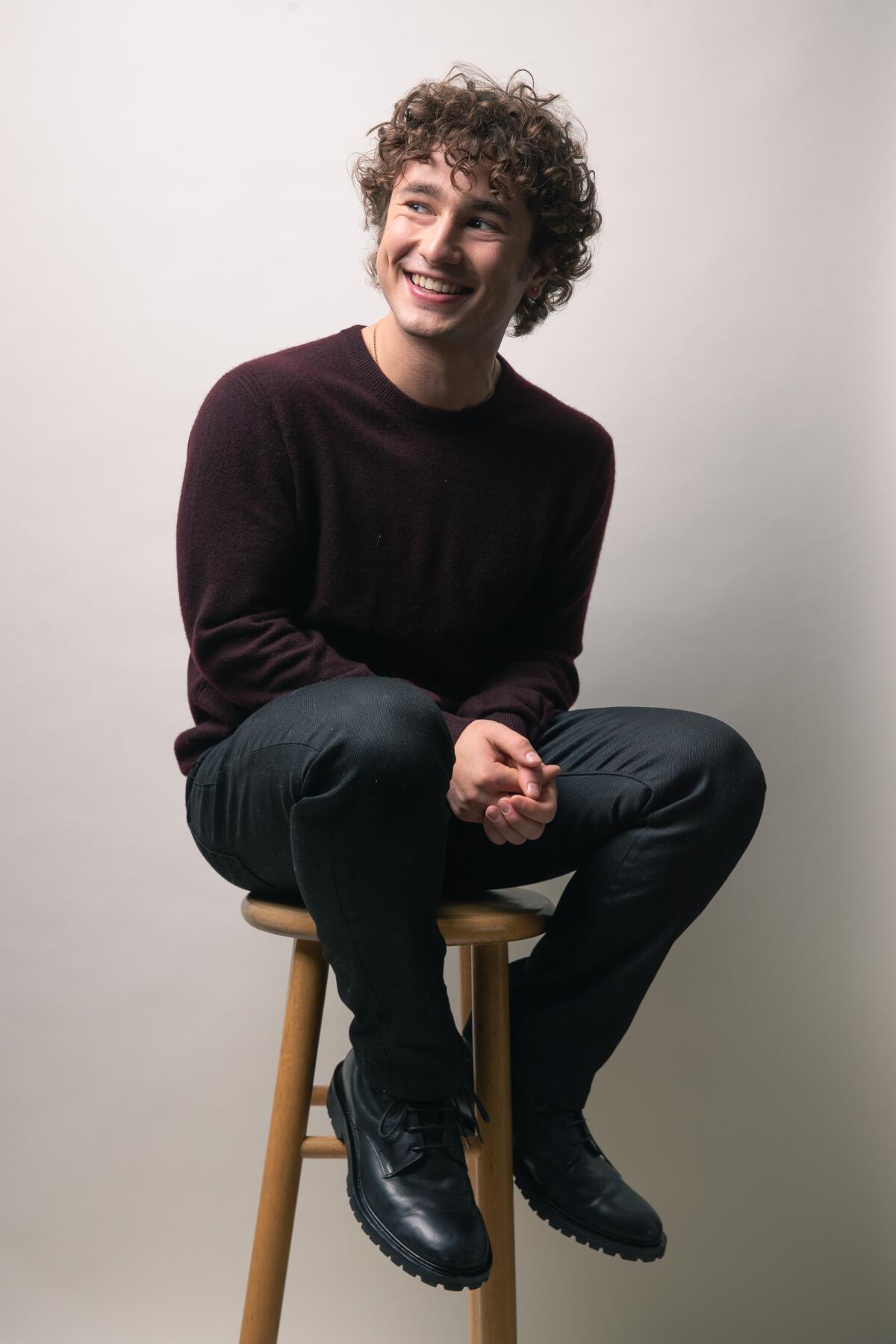
Over a series of Zoom conversations before shooting began, LaBelle probed Spielberg about what in the script had really happened and what was fiction, trying to understand what made him tick. Essentially everything in “The Fabelmans,” he came to learn, was drawn from the director’s life, from the marital infidelity that tore his family apart to his mother’s pet monkey. (One minor exception: Sammy’s devoutly Christian high school girlfriend in the film was actually based on someone Spielberg had dated slightly earlier, in seventh grade.)
”It was just the two of them on Zoom, really getting to know each other,” says Spielberg’s producing partner Kristie Macosko-Krieger. “Steven said, ‘It felt like he was deposing me.’ But I think they really enjoyed that time together. Steven has that ability to relate to and direct young people. It’s just something he was born with.”
As they got acquainted, Spielberg says he was just trying to answer LaBelle’s questions the best he could. ”I left it to him to decide how much he wanted to be like me,” Spielberg says. “He has such natural ease [and is] so at home in his own skin and you never catch him acting — or in this case, trying to impersonate me. Above all, I trusted him and didn’t want to get in the way of what I knew he could bring to the role.”
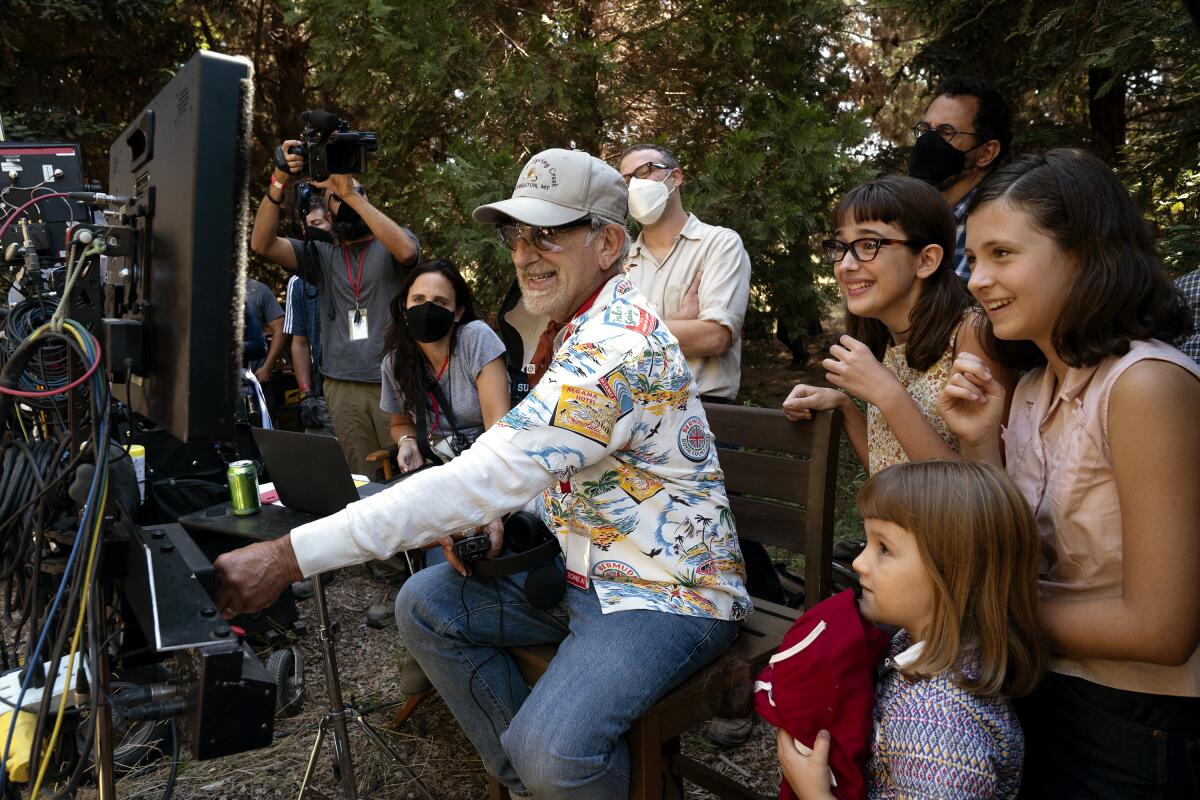
Though separated in age by more than half a century from the 75-year-old Spielberg, LaBelle related to the filmmaker in some fundamental ways.
“There are a lot of similarities I could understand,” he says. “We’re both Jewish; we’re both kids of divorce; we both love films. Throughout the film, Sammy is going through a lot of firsts that I’m not so far ahead of. The perspective change of seeing your parents as people for the first time — that’s something I was new to as well.”
Steven Spielberg’s ‘The Fabelmans’ and Alejandro Iñárritu’s ‘Bardo’ are among an unexpected rush of self-reflexive films due for release this year.
On set, LaBelle did his best to hide how intimidated he was by the far more experienced heavy-hitters all around him. In Seth Rogen, who plays a close family friend who has an affair with Williams’ Mitzi, LaBelle found something of a kindred spirit. “We’re both curly-headed Jewish actors from Vancouver who smoked weed in high school,” LaBelle says, smiling. “Like, what’s not to love?”
Rogen says he had no inkling of how nervous LaBelle was while shooting the film. “Gabe was shockingly confident,” Rogen says. “I remember I talked to his brother at the Toronto [Film Festival] premiere, and he was telling me how much anxiety Gabe was having as we were making the movie. I was like, ‘Wow, you would have never known.’ It shows what a good actor he is.”
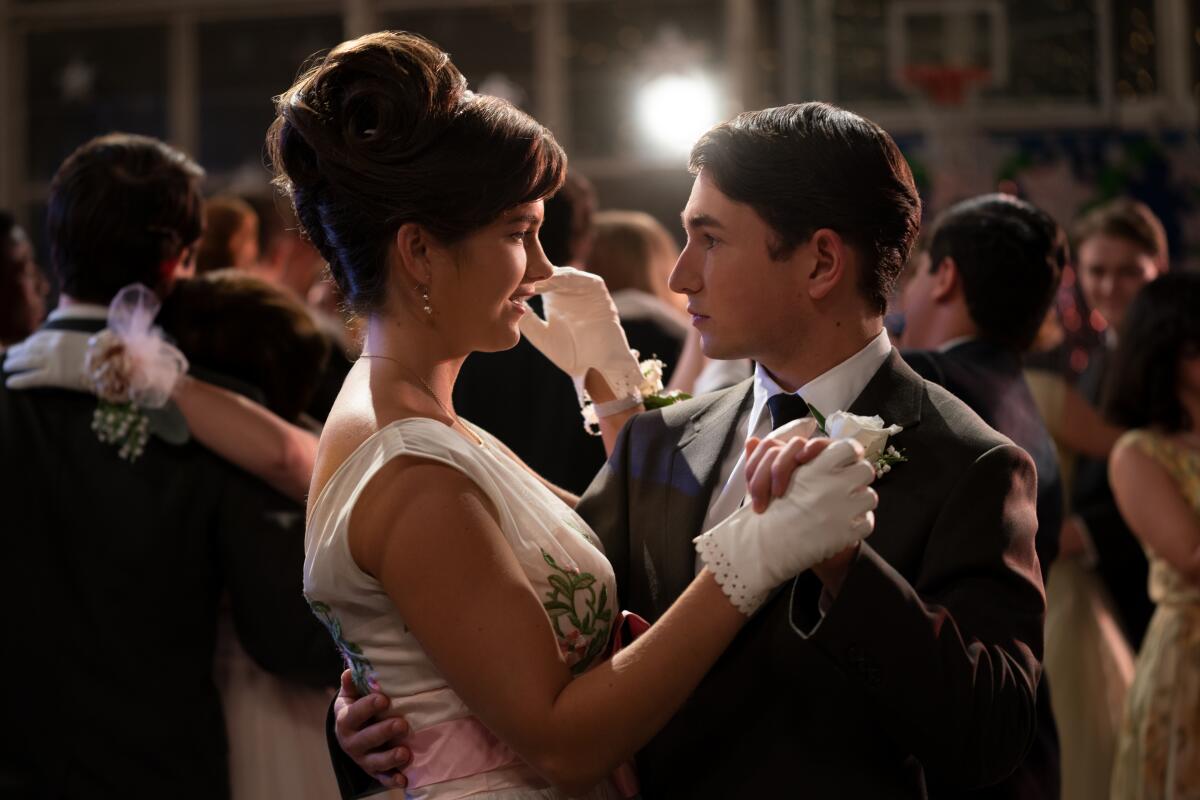
Since the film’s premiere in September, LaBelle’s life has been a whirlwind of screenings, Q&As and interviews. “It’s overwhelming because I haven’t done anything like it before,” he says. “I’m learning how to navigate through these awkward experiences and interactions, how to find out if somebody’s actually interested in what you’re saying or if they’re only talking to you because they think they should. It’s a lot to be put into.”
Indeed, it’s hard to imagine a better calling card for a young actor than playing a version of Spielberg in a Spielberg film. But while LaBelle has set aside his earlier plans of going to college, he’s trying to stay sane and grounded.
“I’ve been spoiled rotten by this,” he says. “You would assume every filmmaker is going to watch this movie because every filmmaker alive has been inspired by Steven Spielberg. I don’t know what I’m doing next. But I will say I have confidence that something will come.”
Whatever happens, LaBelle has already experienced the ultimate validation: He made Steven Spielberg cry.
“There were definitely moments that Steven got emotional on set, watching these deep memories displayed in front of him,” LaBelle says. “There were certain scenes that when we finished filming, we’d all just do a big group hug. It was intense. But selfishly, whenever he would cry, I thought, ‘I did exactly what he needed to help him process these things. I did my part.’“
Cate Blanchett, director Todd Field and composer Hildur Guðnadóttir break down the vital role classical music plays in the critically hailed ‘Tár.’
More to Read
Only good movies
Get the Indie Focus newsletter, Mark Olsen's weekly guide to the world of cinema.
You may occasionally receive promotional content from the Los Angeles Times.
